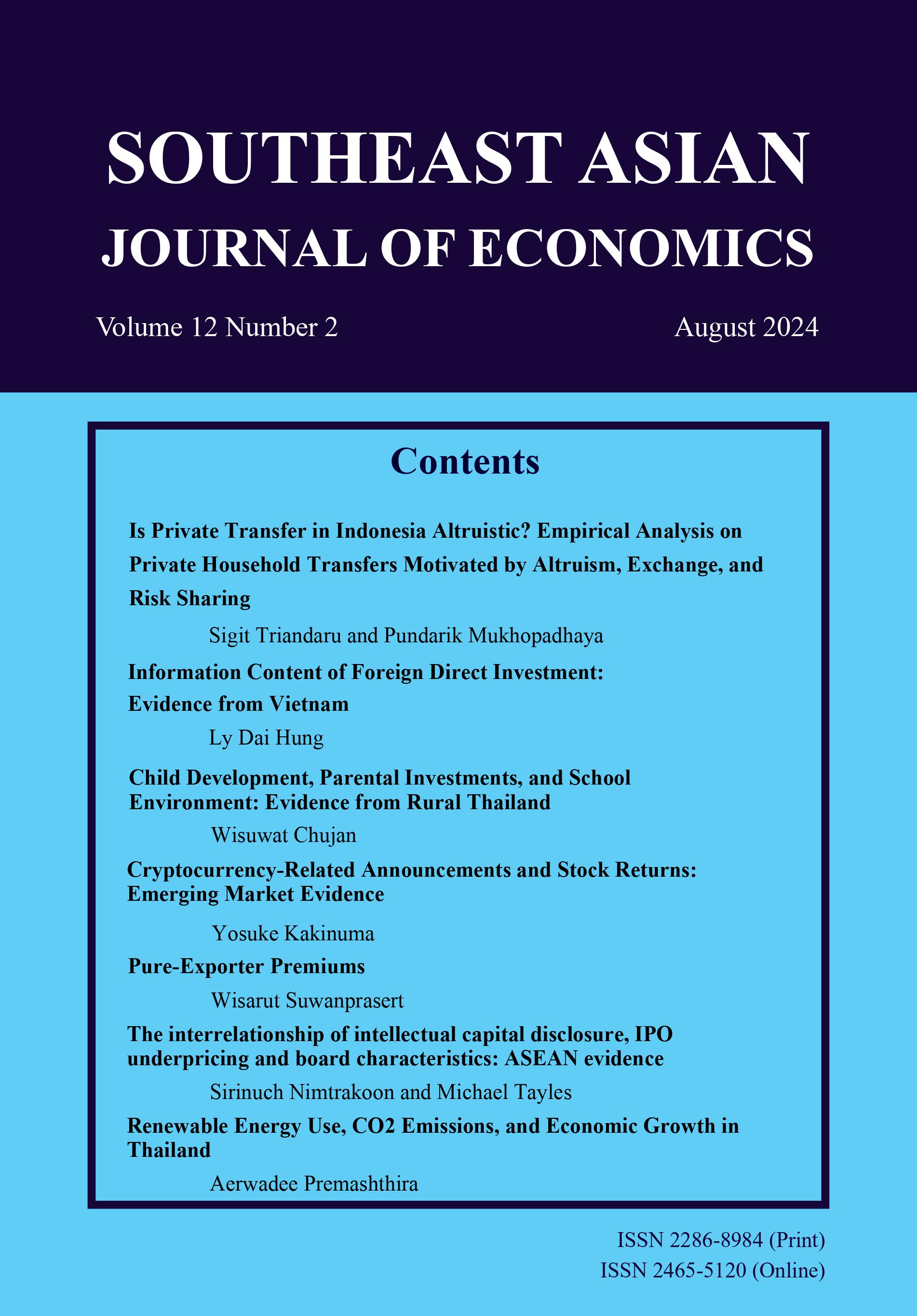Is Private Transfer in Indonesia Altruistic? Empirical Analysis on Private Household Transfers Motivated by Altruism, Exchange, and Risk Sharing
Keywords:
altruism, private transfer, risk sharing, IndonesiaAbstract
This study reveals the motivation behind private transfer in Indonesia by analyzing the Indonesia Family Life Survey wave 5 data, which covers more than 14,000 households across fifteen provinces. The private transfers include not only parent-children transfers but also transfers to and from other relatives, friends, neighbors, and non-government organizations. The data set provides fifteen explanatory variables to cope with the multidimensional nature of private transfer by considering transfers both from the perspective of the beneficiaries and the donors. The analysis shows that private transfers in Indonesia are driven by a mix of altruism, exchange, and risk sharing motives. The level of income among beneficiaries inversely affects the amount donors contribute, particularly in cases of altruism and risk sharing motives. These dynamics could undermine the impact of governmental antipoverty policies, as public transfers might displace private transfers.
Downloads
Published
How to Cite
Issue
Section
Categories
License
Copyright (c) 2024 SOUTHEAST ASIAN JOURNAL OF ECONOMICS

This work is licensed under a Creative Commons Attribution-NonCommercial-NoDerivatives 4.0 International License.
The submission of a manuscript implies that the paper is an original work and has not been published elsewhere. The author(s) authorize the journal to reproduce or distribute the paper in printed or other electronic forms.







